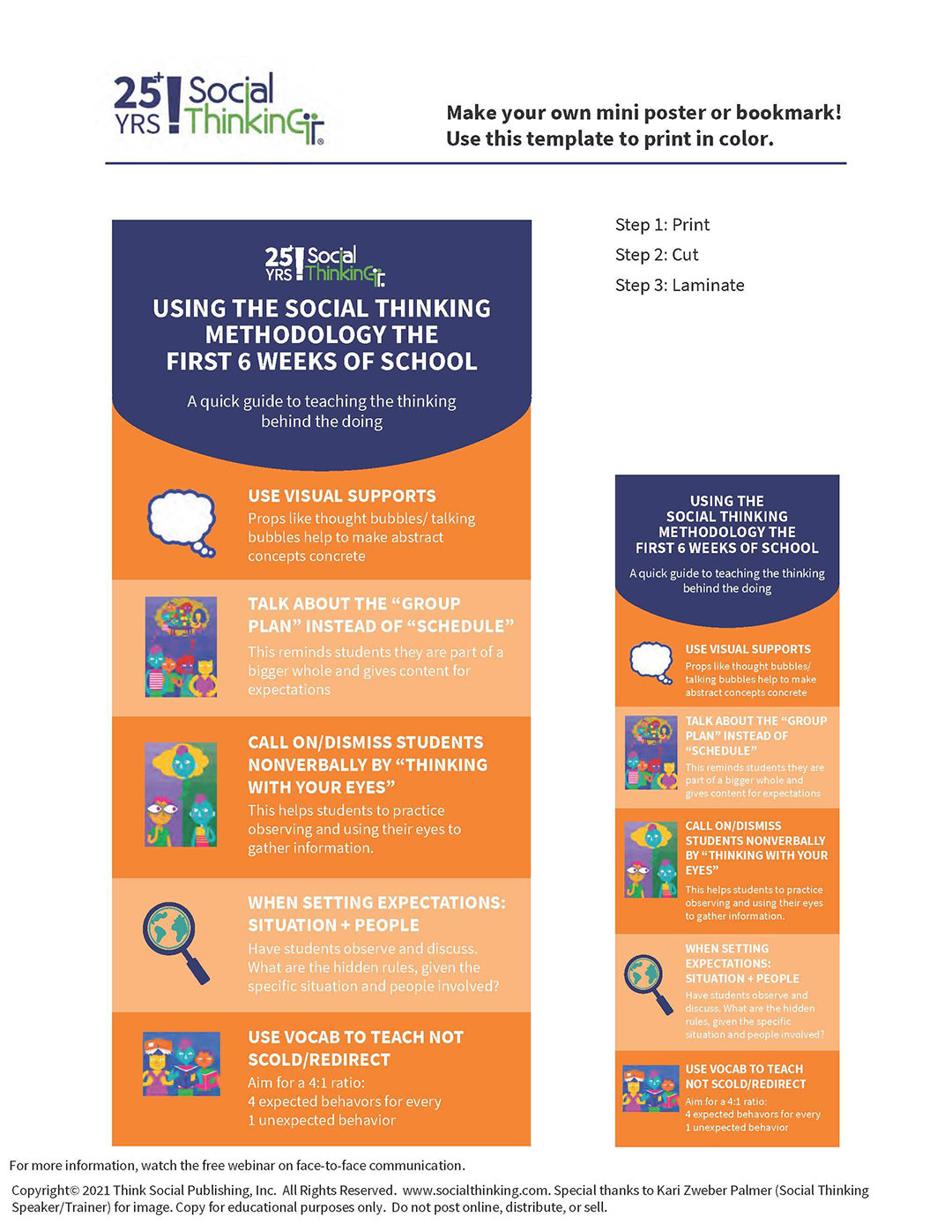Lay the foundation for social learning with our most popular Social Thinking vocabulary resources
At the heart of the Social Thinking Methodology is our vocabulary. It’s our way of translating complex social concepts into a simpler form that can be taught and used as a common language to talk about what it means to “be social” across people, cultures, and context. Social Thinking Vocabulary encourages individuals to actively notice what’s happening around them. The language can be used whenever and wherever needed to talk about social expectations and interpretations: working as a group during a math lesson, dinnertime at home, hanging out with friends on the playground, participating as members of a team during P.E., etc. The concepts are expressed in simple language to make these abstract ideas easier to understand and motivate individuals to integrate them into their daily experiences as they participate in the social world.
The Social Thinking Methodology provides evidence-based strategies to help people of all ages develop their social competencies, flexible thinking & social problem solving and improve: conversation & social connection, executive functioning, friendship & relationship development, perspective taking, self-regulation, and Social Thinking vocabulary.
Quick Links
- Best-Selling & Award-Winning Products
- On Demand Courses
CEs available for select professionals - Free Stuff for Home & School
- What is Social Thinking?
Best-Selling Social Thinking Vocabulary Products
On Demand Courses—Practical Strategies You Can Use Right Now
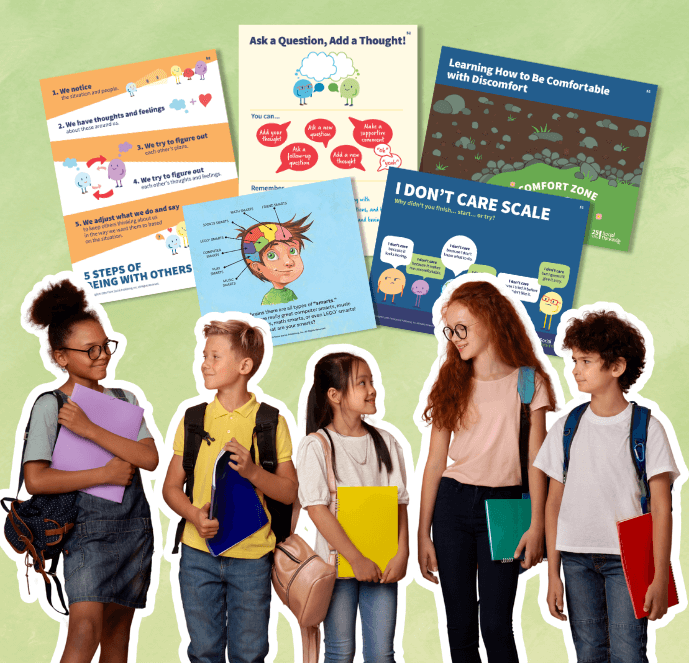
Implementing Social Thinking Concepts and Vocabulary
Both teachers and learners need practical ways to think about the social world. In this introductory course, you will learn 15+ practical teaching strategies using Social Thinking Vocabulary and visual frameworks. The activities from this course focus on making abstract social information more concrete through lessons to teach social learners how to socially attend, interpret, problem solve, and respond to social information. Activities will also focus on strategies for teaching emotional understanding, theory of mind/perspective taking, and executive functioning to help learners meet their own social goals. Note: This course is introductory and designed for those who are new to Social Thinking or just want to expand how they teach lessons from the Social Thinking Methodology. The 90-day Recorded Replay Access begins at the time of Registration.
4.5 hours of training and CE credit available for select professionals.
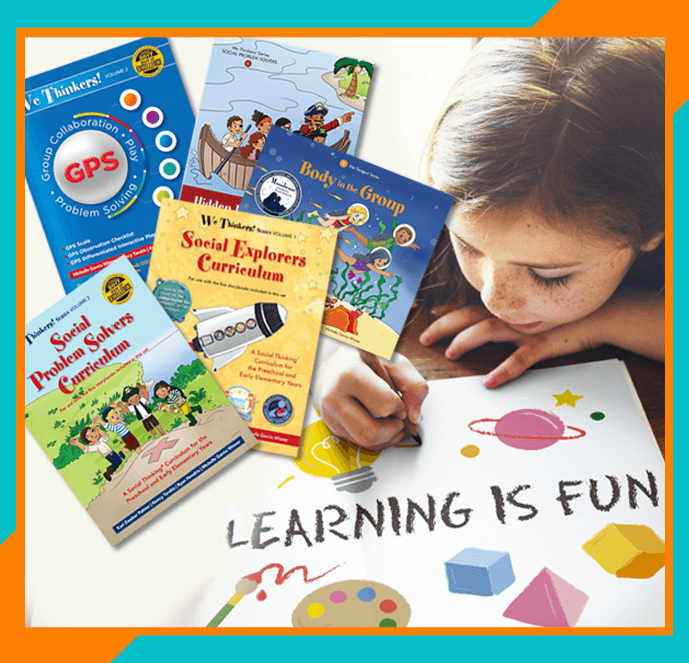
Helping Early Learners Build Social Competencies
This strategy-filled course delves into crucial aspects of building social competencies in preschool and early elementary-age students (ages 4-7). Explore how flexible thinking, social language, self-regulation, and social and emotional development are vital for developing collaborative interactions in group settings, both on the playground and in the classroom. Gain insights from a research perspective on the impact of executive functioning, social attention, and social problem solving through the lens of our award-winning We Thinkers! curriculum series. Walk away with practical strategies and examples to seamlessly integrate social learning concepts into your existing teaching methods. The 90-day Recorded Replay Access begins at the time of Registration.
5.5 hours of training and CE credit available for select professionals.
Free Thinksheets
Using Your Senses
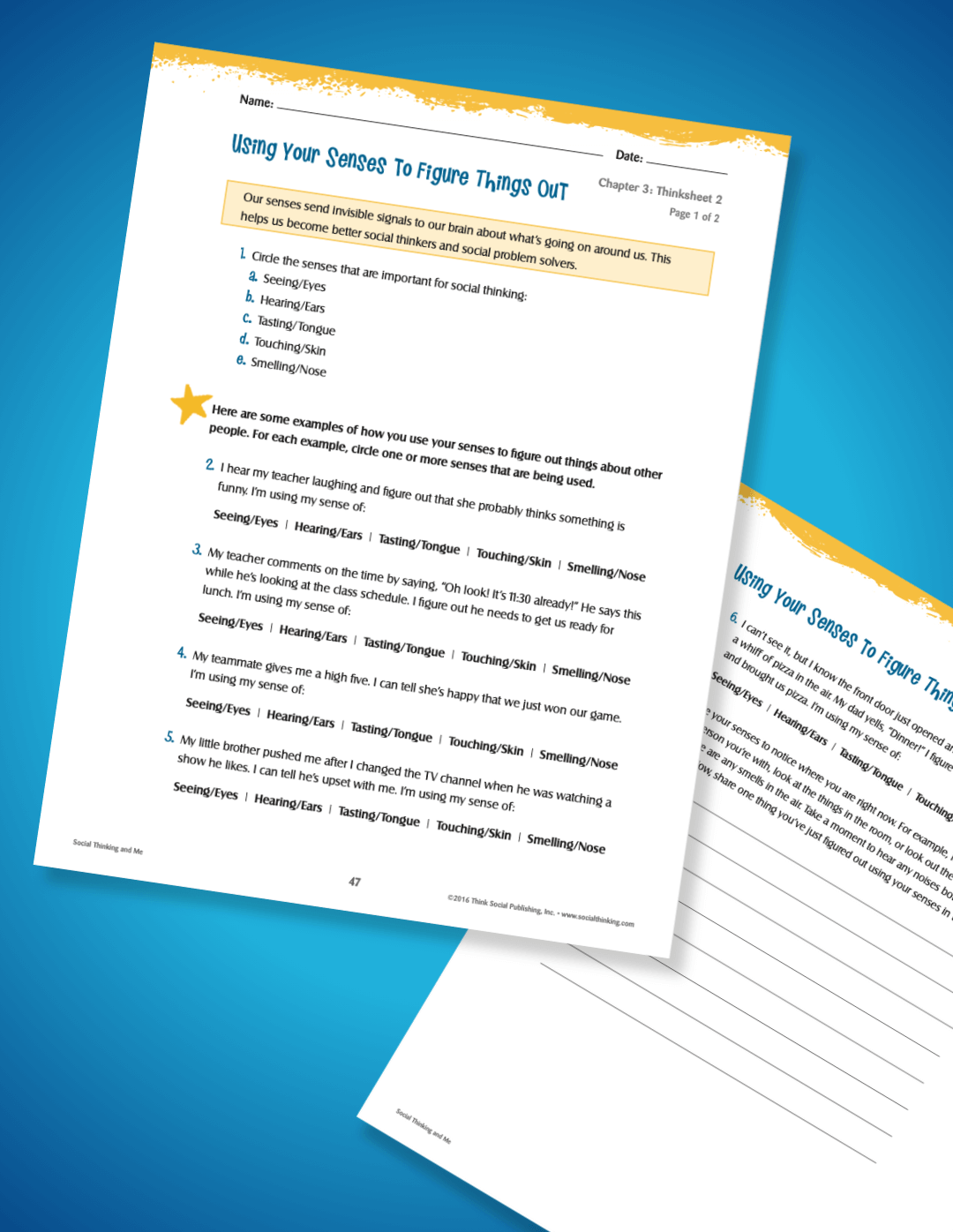
Social Thinking Vocabulary Kahoot - Online Trivia
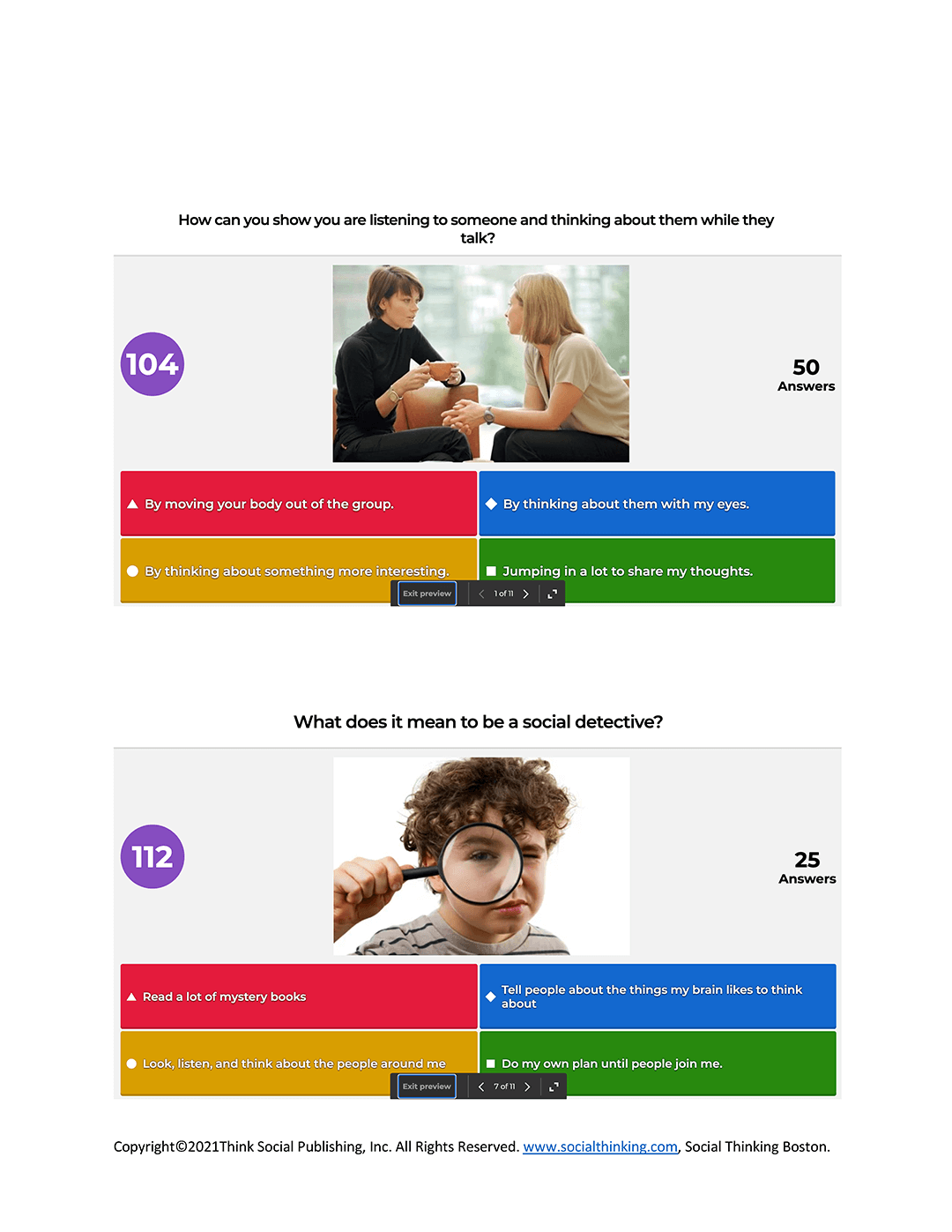
Free Bookmark
